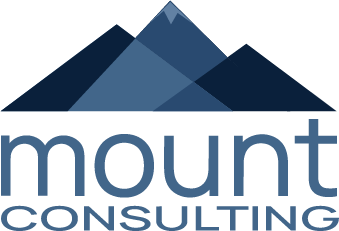DOMINIQUE VANDE LANGERIJT & JORT KOLMAN
Consulting 5.0: Our perspective on Consulting
Consultants, we’re a different breed. Or so we are told. But what exactly is a consultant and how did this role evolve? There is no other term which is used in so many different circumstances to indicate completely different responsibilities and activities. That is why we would like to share with you our view on the history, and more importantly, the future of consultancy.
CONSULTING 1.0 – GUIDES
The need for advisors is as old as the tale of humanity. Early tribes had the Shaman, the one with access to the spirit world, guiding the tribe and its leader through tough times and difficult decisions.
CONSULTING 2.0 – POLITICAL ADVISORS
In Egypt there was the Vizier, the highest official to serve the Pharaoh as a trusted court advisor. In ancient Macedonia we find the Philoi, the friend and advisor to the king. In the middle ages, the French kings would have the Curia Regis, the king’s court, advising them on all sorts of matters.
All of them have in common that the king/leader appoints them and they are free to speak their mind on matters of great and small impact. They would compensate for any lack of knowledge from the leader; William the Conqueror may have been illiterate, but his double-second cousin made more than up for it by being his law officer and the commander of his household knights.
CONSULTING 3.0 – MANAGEMENT CONSULTING
Most textbooks will start their storyline on consulting with Arthur D. Little, ignoring the rich history of advisory throughout time. He started a general management service in 1886, and later specialized in technical and management engineering. In their wake came Booz Allen and Hamilton (1914), McKinsey (1926) and BCG (1963).
As Management Consulting developed, the boundaries of the service became clearer and more profound. Clients started seeing the need and value Management Consulting could provide: independent advice that serves to make better decisions.
CONSULTING 4.0 – OPERATIONAL EXCELLENCE
The introduction of computers in the workspace led to the need for new consulting services. This sparked the rise of the Big Four, focusing on excellence and more specifically on operational excellence; where more and better could be done with less resources. This also translated to the consultants themselves; the ability to deliver knowledge and support in large quantities through a smooth operational construction of the consultancy organization.
As a countermovement to the operational excellence and its big work forces, there was the advent of the niche consultants. Firms that specialized in one domain or trade by ensuring that a small team had a very concentrated knowledge on a specific topic.
CONSULTING 5.0 – PEOPLE DRIVEN
Where does this leave us today? And what is the step that Mount Consulting wants to take in consulting?
We are convinced that the way forward is simple and equally powerful: people-centric consulting. This breaks down into three aspects:
- Our people are our assets. We as a company must create an environment in which our employees can thrive. We need to provide the right projects and challenges for them to grow and learn, as well as trust them to take responsibility. No staff augmentation, no forcing of profiles into projects they do not support. We are in this together and we will ensure that every colleague can thrive in our inclusive and open environment where entrepreneurship is encouraged.
- Focus. Do not expect your consultants to be the perfect allrounder, instead allow them to excel and grow in their strengths. Likewise, do not attempt to offer each imaginable service to every client, be very thoughtful on what you are offering and to whom you are offering these services. For Mount Consulting this translates to strategic transformation services for CFO and CRO, exclusively in the Financial Services Industry.
- Clients hire people, not companies. That is why it is important that we and all of our employees build relationships with our clients. On a personal and professional level, so that we can understand and service both the person and the organization they represent. The trusted advisor, the catchphrase used by all consultancy firms, is the person who really understands the motivation of a client. A motivation which is not switched on at 9 and switched off at 5, it is an intrinsic part of the person you are dealing with as well as the company they work for.
This is the future of management and strategy consulting as we see it. Do one thing very well and make sure that you treat everyone, colleague and client, as the asset that they are.
We will hold ourselves to these standards and we hope you, as our future colleague or client, will be the judge of how effective this is.
Want to know more?
We like to talk about our business and how we can help you!
